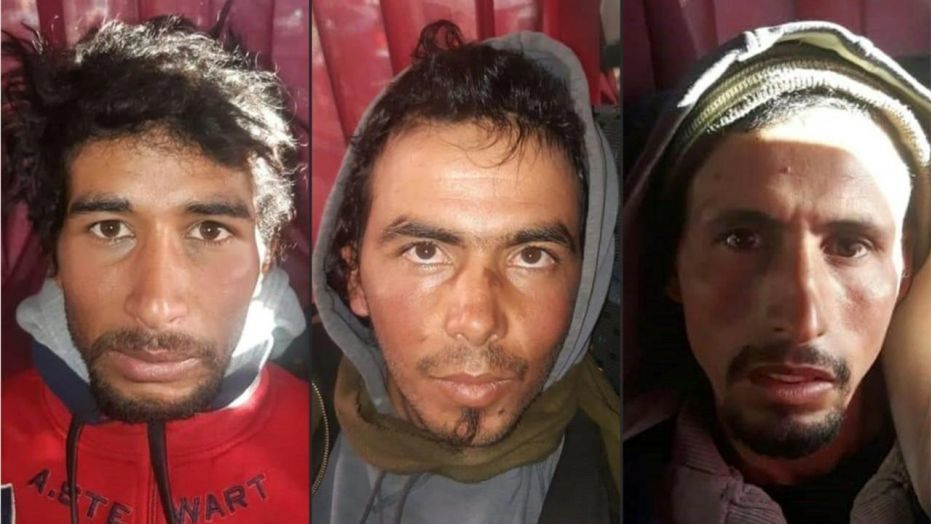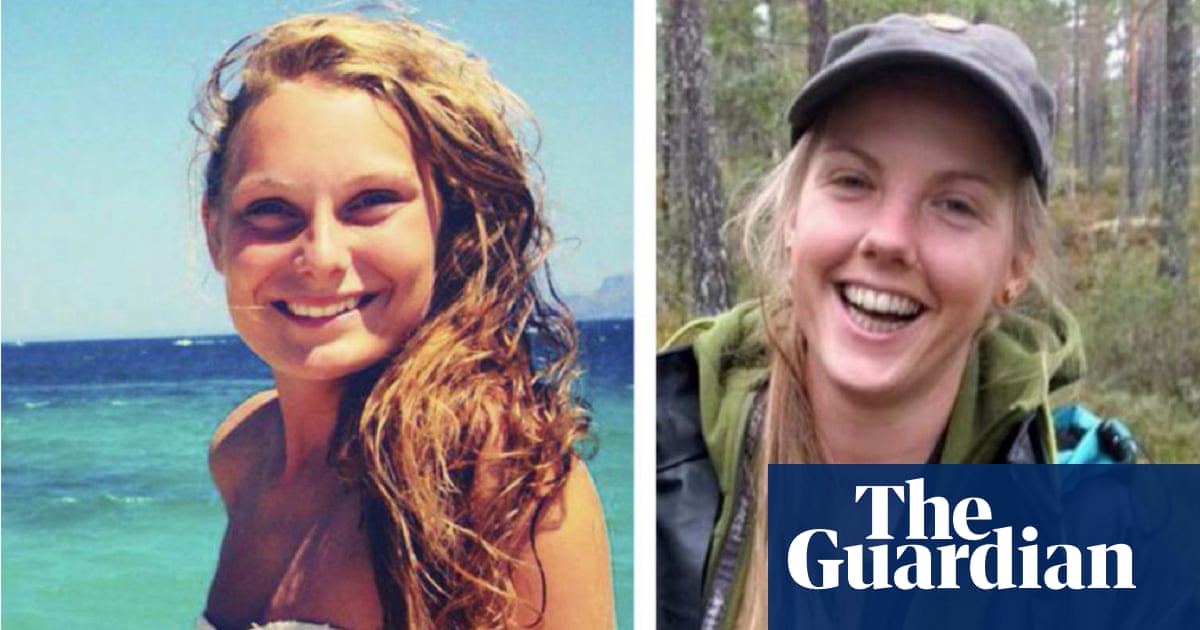Thé Guardian
Peter Beaumont
Three men held in Marrakech as suspicions grow that Islamists were behind killing of two Scandinavian women.
Danish intelligence services are investigating a video circulating on social media they believe could show the murder of two Scandinavian women killed in Morocco as fears mount that the tourists were killed by extremists linked to Islamic State.
The Danish intelligence service, the PET, at first said it had authenticated the video but later rowed back, saying it was still being “examined”. The latest statement came as Moroccan authorities arrested three more suspects over the killings in the Atlas mountains, which have sent shockwaves through a popular tourist destination that has been relatively untouched by Islamist attacks.
The Moroccan government spokesman, Mustapha El Khalfi, described the killings as a “criminal and terrorist act”.
Rachid Afatti, Ouziad Younes and Ejjoud Abdessamad were arrested in Marrakech as they tried to board a bus to the popular tourist resort of Agadir, according to a national security spokesman, Boubker Sabik, who said police were investigating whether they had terrorist affiliations.
Investigators were in the process of “verifying the terrorist motive, which is supported by the evidence and the findings of inquiries”, the central judicial investigations office said.
The men were seized with three long machete-like knives, a shorter blade, a slingshot and several mobile phones. Another suspect arrested in Marrakech on Tuesday had affiliations to an extremist group, Moroccan authorities said, and had apparently identified the others involved.
Pictures of the three men arrested on the bus also appear to show at least one man bearing a striking similarity to one of four individuals who had recently posted on social media declaring his allegiance to Isis while posing under the group’s flag.
Composite image of the three arrested men, Rachid Afatti, left, Ouziad Younes, centre, and Ejjoud Abdessamad. Photograph: AFP/Getty Images
The discovery of machetes with handles wrapped with electrical tape under the seats of the bus will raise questions of whether they planned a second assault, perhaps in Agadir.
The bodies of Louisa Vesterager Jespersen, 24, from Denmark, and Maren Ueland, 28, from Norway, were found on Monday in an isolated area near Imlil, which is on the route to Toubkal, north Africa’s highest peak and a popular hiking destination.
According to some local media reports the killers had camped near their victims, about four miles’ hike from the nearest town, and fled the scene after the attack. The bodies were found on Monday by two French women who were hiking near the remote spot where Jespersen and Ueland had pitched their tent.
Louisa Vesterager Jespersen, left, and Maren Ueland. Photograph: vg
“We took a picture to show the police where we found them and went down again,” one of the witnesses told the Norwegian tabloid VG. “We warned everyone we saw [in the nearby town of] Imlil from going there. I did not want more to see what we had seen.”
In an earlier statement PET said Moroccan authorities had indicated that the killings may be related Isis. That speculation was fuelled by claims on Morocco’s 2M television network that investigators had linked the first of the four people arrested over the murder to the terror group.
Moroccan television broadcast an interview with the brother of one of the three men arrested on the bus who suggested his sibling had been “brainwashed” by militants.
“He had no education and was brainwashed,” said the brother adding that his sibling had disappeared a week ago. “He was a normal guy, but was radicalised. What happened has nothing to do with Islam.”
The latest claims over the motive came as fresh details emerged of the two women’s last days. They had stayed in a hostel where they encountered a local mountain guide, Rachid Imerhade, who said he had cautioned them about camping alone on their planned ascent of the Toubkal mountain.
Moroccan media outlets reported that investigators also had video surveillance footage showing the suspects putting up a tent near the victims’ tent and leaving the area after the killings.
The murders can be considered “politically motivated and thus an act of terror”, the Danish prime minister, Lars Løkke Rasmussen, said on Thursday. He said “there are still dark forces that want to fight our values” and “we must not give in”.
In Norway, the prime minister, Erna Solberg, said terrorism “is not the only lead that is being investigated in Morocco” but said the case still “emphasises the importance of combating violent extremism”.
Jespersen had posted on Facebook about her upcoming trip before leaving. “Dear friends, I’m going to Morocco in December. Any of you guys who’s around by then or any mountain friends who knows something about Mount Toubkal?”
In the videos that have been circulating, a voice can reportedly be heard speaking of the “enemies of Allah” several times and referring to “revenge for our brothers in Hajin”, referring to the last stronghold of Isis in Syria, which fell a few days ago.
The two victims were friends from the University of South-Eastern Norway, where they were studying together. “What we know is that they were on a month-long, private holiday in Morocco. Our thoughts go to the families,” the university said.
The killings have prompted concerns about the impact on Morocco’s tourist sector, which accounts for 10% of national income, as the kingdom’s relative security has been a major selling point.
As 2018 draws to a close….
… we’re asking readers to make an end of year or ongoing contribution in support of The Guardian’s independent journalism.
Three years ago we set out to make The Guardian sustainable by deepening our relationship with our readers. The same technologies that connected us with a global audience had also shifted advertising revenues away from news publishers. We decided to seek an approach that would allow us to keep our journalism open and accessible to everyone, regardless of where they live or what they can afford.
More than one million readers have now supported our independent, investigative journalism through contributions, membership or subscriptions, which has played such an important part in helping The Guardian overcome a perilous financial situation globally. We want to thank you for all of your support. But we have to maintain and build on that support for every year to come.
Sustained support from our readers enables us to continue pursuing difficult stories in challenging times of political upheaval, when factual reporting has never been more critical. The Guardian is editorially independent – our journalism is free from commercial bias and not influenced by billionaire owners, politicians or shareholders. No one edits our editor. No one steers our opinion. This is important because it enables us to give a voice to those less heard, challenge the powerful and hold them to account. Readers’ support means we can continue bringing The Guardian’s independent journalism to the world.
Please make an end of year contribution today to help us deliver the independent journalism the world needs for 2019 and beyond. Support The Guardian from as little as $1 – and it only takes a minute. Thank you.









